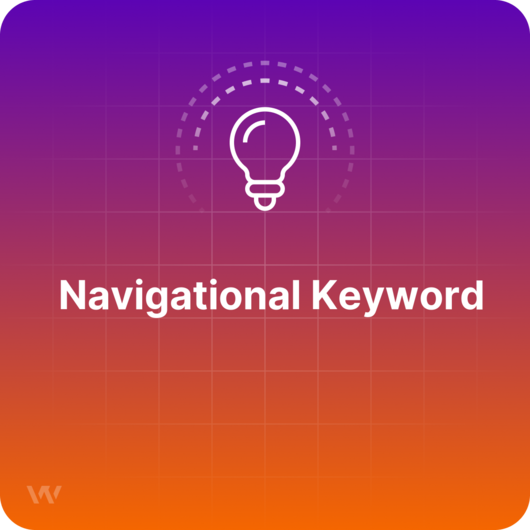Navigational Keyword

TL;DR
Navigational keywords refer to a type of long-tail keyword, which search engines can determine to be part of a search query that has the intent to navigate to a certain page, as opposed to informational keywords (looking for information) and transactional keywords (looking to buy). In terms of purchase decisions, navigational keywords are associated with the “taking into consideration” phase.
What is a navigational keyword?
Modern search engines, using neural matching, have learned to understand the intent behind some of the search queries users perform. Although the exact algorithm by which this is determined is not public knowledge, we can hypothesize that there are at least three types of long-tail keywords, based on the intention of the person performing the search, as well as the purchase decision:
Informational keywords (“know”)
Navigational keywords (“go”)
Transactional keywords (“do”)
In the case of informational keywords, the user is looking for information. Queries, in this case, may be formulated as a question or may include words such as guide, tutorial, compare, review, rate, etc .
Transactional keywords may suggest an intention to buy something. These may include the words buy, where to buy, reserve, book, booking, deals, discount, order, for sale, etc.
On the other hand, navigational keywords suggest that the intention of the user is to navigate to a certain page, which they are already most likely aware of, but, for one reason or another, do not directly type in the web address.
Navigational keywords may include brand names, product names, service names, locations or words such as near me, directions to, prices, cost of, etc. For example, a user who is already familiar with a website and some of its features, may perform a search on: Website name starter package price.
How can I use navigational keywords to optimize?
Unlike informational and transactional keywords, for which you can optimize easily, there is not much to be done for navigational keyword optimization, which is performed by people who are already aware of your brand.
However, it is important to create a very good internal organization of your website, with separate pages for separate topics and features.
Furthermore, everything should be properly tagged and proper keywords should be used. This way, users looking for something very specific on your website will be led directly to the relevant content, instead of the homepage or other general content pages.

